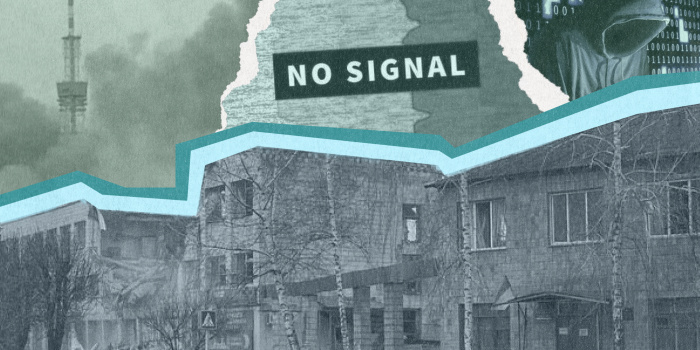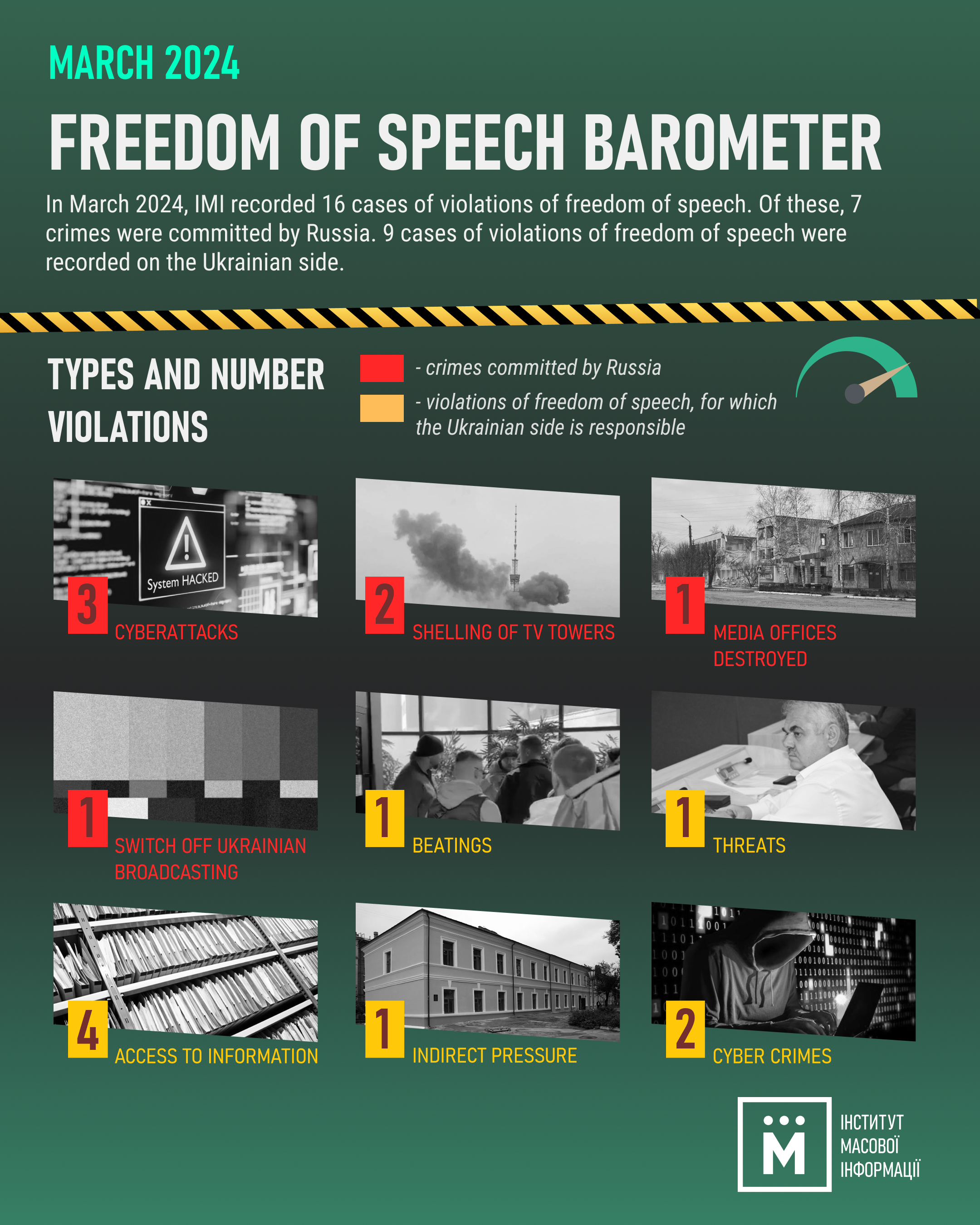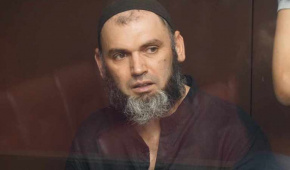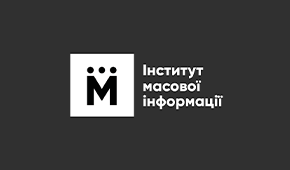IMI records 16 freedom of speech violations in Ukraine in March

The Institute of Mass Information experts recorded 16 freedom of speech violations in Ukraine in March, according to the monthly IMI monitoring “Freedom of Speech Barometer”.
Russia’s crimes (seven cases) include cyber attacks, strikes on TV towers in the Kharkiv and Sumy oblasts, damaging a media office with shelling and Ukrainian broadcasting being disabled as a result of Russian strikes.
The Russian aggression resulted in the deaths of four media workers who were defending Ukraine from occupation. The death of two, Dmytro Sinchenko and Oleh Shemchuk, was only reported in March and April, as they had been considered missing:
- Dmytro Sinchenko – soldier and journalist who wrote for "Tyzhden" and Radio Liberty. His death was only reported on March 8, 2024. He had been missing since late August 2023.
- Petro Tsurukin – had been considered missing for over half a year. His death was reported on March 18, 2024. He was a soldier, TV host, and editor who worked for STB TV as the chief editor of the "One for All" project and was a host at the channel Kyiv Live.
- Mykola Oransky – soldier and formerly a TV studio engineer at hromadske. Died on March 22, 2024 during a combat mission near Robotyne, Zaporizhzhia oblast. Mykola was a UAV operator in the separate mechanized brigade No. 118.
- Oleh Shemchuk – journalist investigator and UAF soldier, went missing in action near Bakhmut in September 2022. His family has been searching for him all this time. However, on April 3, 2024, they were informed that Oleh had been declared dead.
According to the IMI, as of April 5, a total of 76 media workers have been killed by the Russian aggression, 10 of whom died while reporting.

Freedom of speech violations in Ukraine in March 2024
Russia has resumed the shelling of Ukraine’s TV and radio infrastructure; previously, the IMI recorded such incidents back at the beginning of the full-scale invasion in 2022 (back then, 16 cases of the Russians shelling TV towers, which are civilian objects, were recorded).
In March 2024, the Russian troops deliberately struck TV infrastructure in Kharkiv oblast with drones. They also carried out missile and air strikes on the radio facilities in the Sumy oblast, leaving some municipalities without TV or radio signal. Later, Suspilne reported that due to the strikes their T2 TV channels and radio channels were temporarily unavailable in both oblasts.
In Sumy oblast, the office of the newspaper "Vorskla" was once again damaged by a Russian shelling strike on Velyka Pysarivka. On March 14, around 1:00 p.m., the Russian troops dropped a guided aerial bomb (UAB) on the Ukrposhta office in the very center of the village. The office suffered significant damage and is no longer fit for work.
Russia also targeted the Ukrainian media. For instance, the website of the digital news aggregator FREEDOM was attacked. The website received 33 million requests in a short time, but continued to work with minor complications. Furthermore, Suspilne Ukraine recorded an attempt to jam their Astra satellite signal from Russia. The signal was being jammed from the space communications center "Medvezh'i Ozera", located in the Moscow suburbs. The attack lasted for an hour and resulted in the television and radio channels being unavailable on the satellite. The broadcasting has since been restored.
The IMI also recorded nine freedom of speech violations committed by Ukrainian citizens. These include beatings, death threats, limiting access to public information, indirect pressure and cyber attacks.
The cases of journalists being denied access to public information were the most numerous (four). Some outlets decided to sue the information holders. For example, Slidstvo.info and the Khmelnytsky media outlet ZHAR.INFO are suing the Verkhovna Rada Apparatus for their refusal to provide the public information they had requested. The journalists submitted their requests to the VRU Apparatus three times, asking for information on the overseas business trips taken by deputies since the start of the full-scale invasion.
Sumy TV channel “Vidicon” reported pressure by the Oblast Council deputy Mahomed Halayev. The editors believe the pressure has to do with their recent story about land allocation issues, which mentioned the deputy's wife, Natalia Halayeva. After the story was released, the deputy called the TV channel’s director Natalia Bratushka and threatened her, promising a war and informational “bullying” by all media in the Sumy oblast. The deputy himself assured the IMI that there had been no threats coming from him.
The websites of two media outlets, Rivne’s “Chetverta Vlada” and Lutsk’s “Syla Pravdy”, came under cyber attacks. "Chetverta Vlada" suffered an intense DDoS attack following the release of an article about the Rivne City Council deputy Svyatoslav Stelmashchuk. The article was about the deputy's luxurious lifestyle which his official income hardly covers.
The "Syla Pravdy" team received a phishing email in their inbox, which claimed that the outlet’s Facebook page was to be temporarily suspended. The journalists were asked to click the attached link to “confirm they owned the page.”
Read the full monitoring here.
The Institute of Mass Information (IMI) is a Ukrainian public media organization that has been operating since 1996. The IMI defends the rights of journalists, analyzes the media field and covers media-related events, fights propaganda and disinformation and has been providing media outlets with safety gear for trips to the combat zone since the start of the Russo–Ukrainian war in 2014.
The IMI carries out Ukraine's only freedom of speech monitoring and keeps a list of high quality and sustainable online media outlets, documents Russia's crimes against the media committed in the course of the war on Ukraine. The IMI has representatives in 20 oblasts of Ukraine and a network of "Mediabaza" hubs to provide journalists with continuous support. The IMI's partners include Reporters Without Borders and Freedom House; the organization is a member of the International Organization for the Protection of Freedom of Expression (IFEX).
Help us be even more cool!


